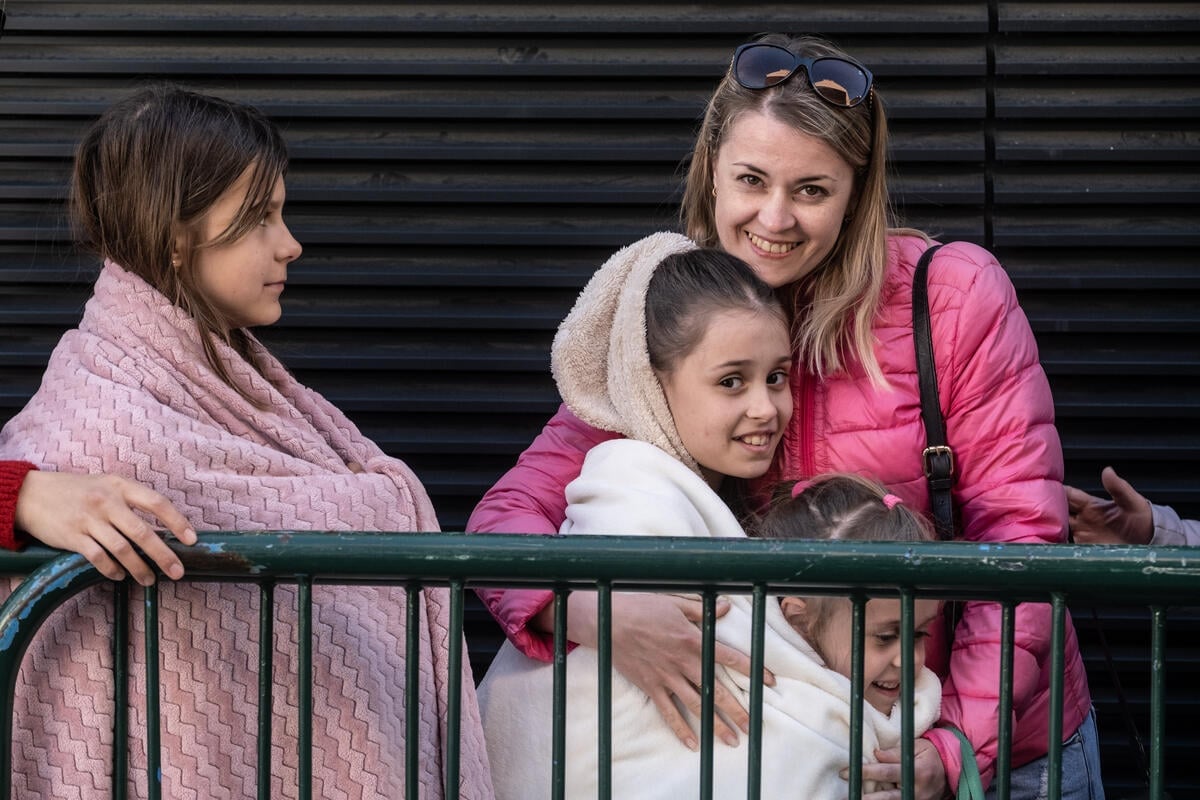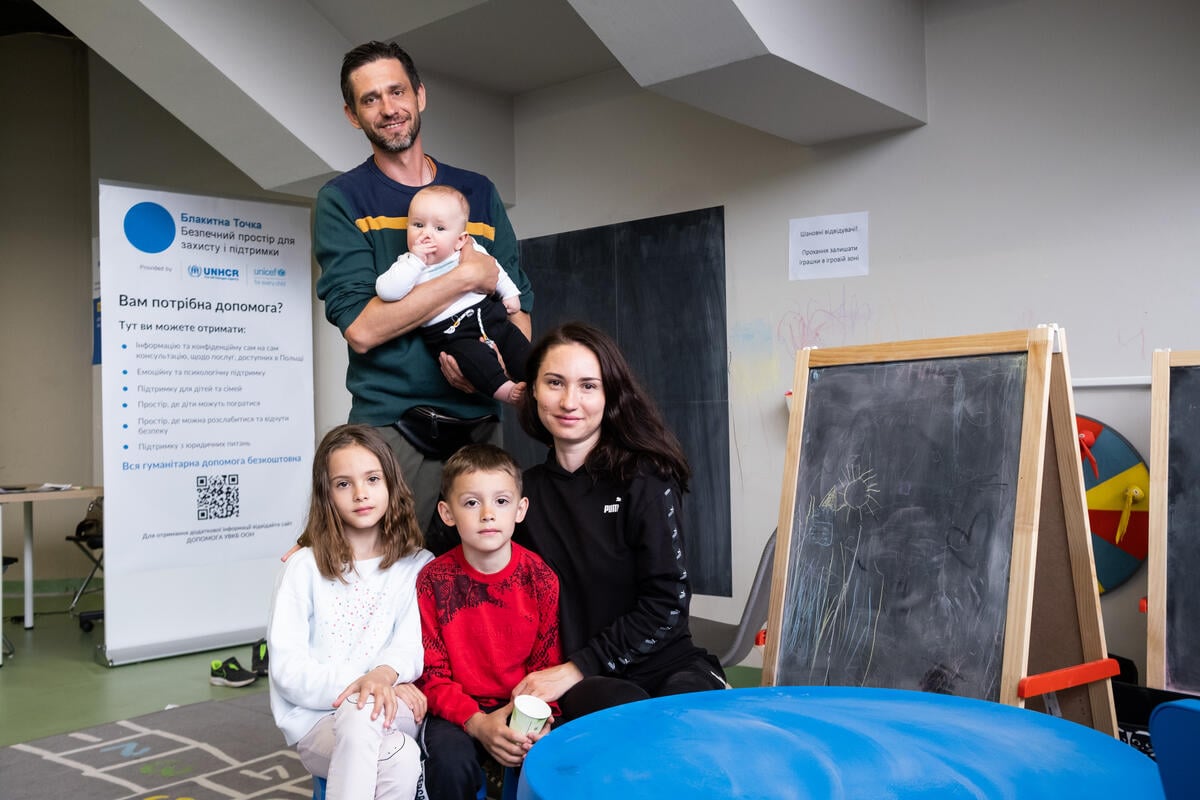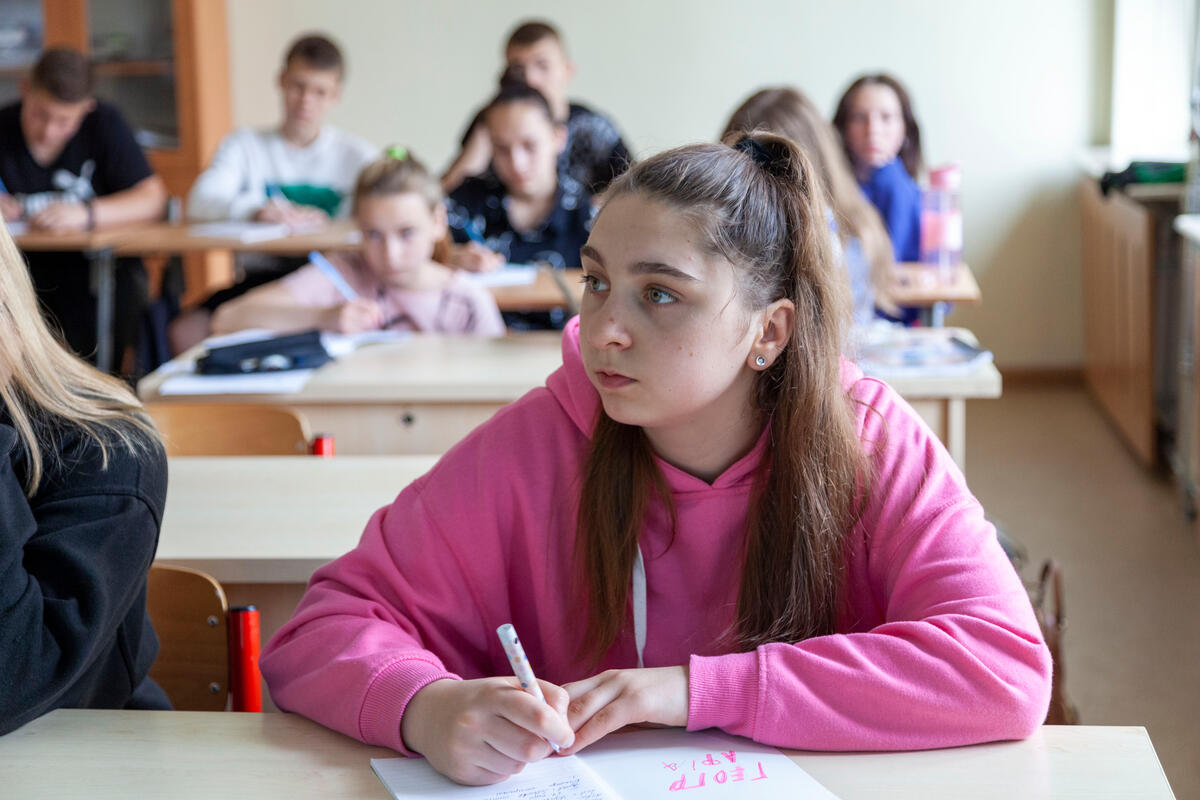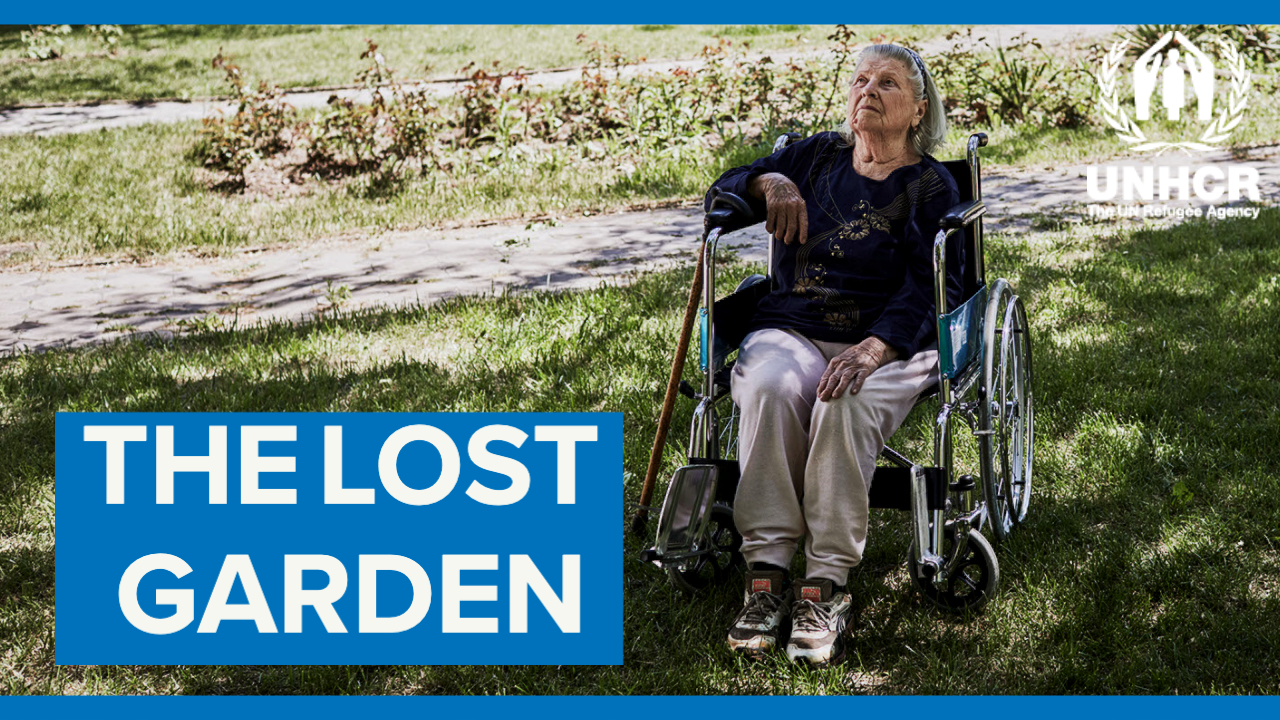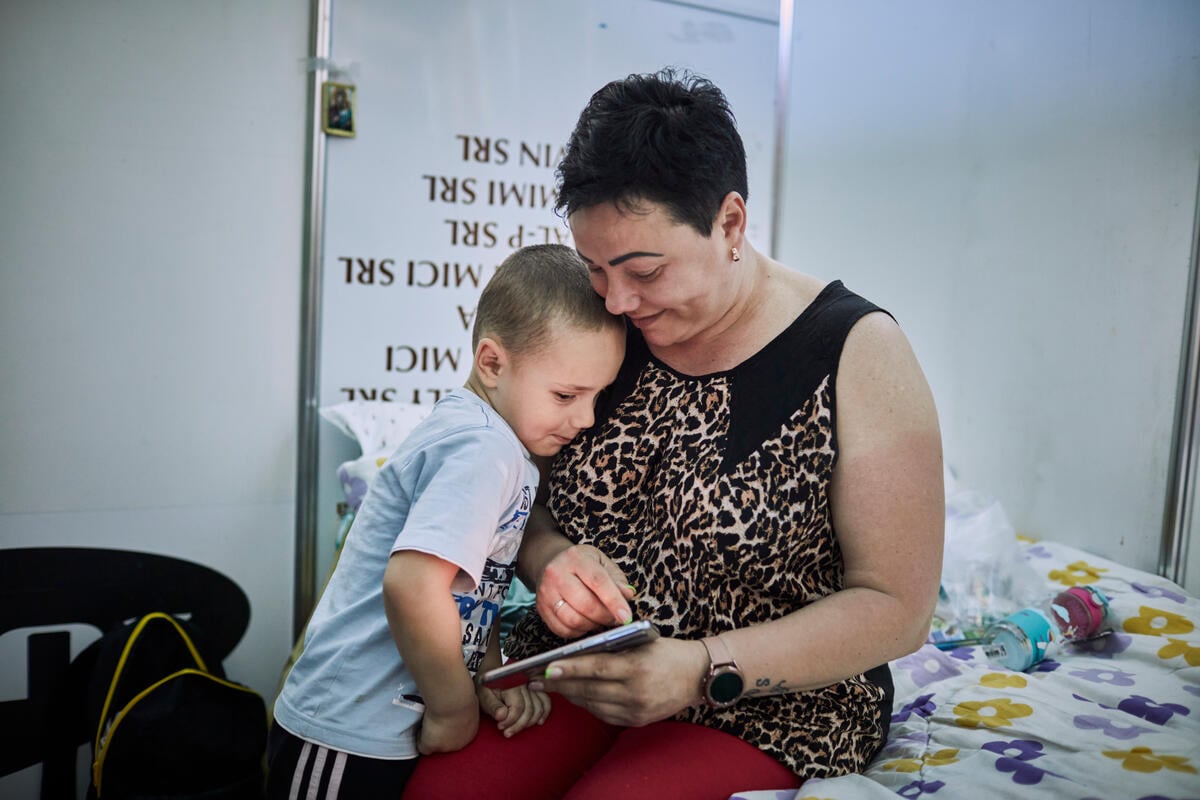UN agencies welcome latest relocations of unaccompanied children from Greece, call for further action and solidarity
UN agencies welcome latest relocations of unaccompanied children from Greece, call for further action and solidarity

GENEVA - IOM, the International Organization for Migration, UNHCR, the UN Refugee Agency, and UNICEF, the UN Children’s Fund today welcomed the latest relocations of 49 unaccompanied asylum-seeking and migrant children from Greece to Portugal and Finland.
Twenty-four unaccompanied asylum-seeking children left Greece and arrived safely in Finland this afternoon. On Tuesday, 25 unaccompanied children arrived safely in Portugal. All the children arrived in good health.
The 49 children had been living for several months in overcrowded reception and identification centers on the islands of Lesvos, Samos, Chios and Kos.
For Mehrang*, 16, from Afghanistan, it is his first time getting on a plane. “I am really excited about it,” he said before boarding the flight in Athens.
“I do not know much about Portugal, but I am making positive thoughts about my new beginning. I am looking forward to going there and joining the local school. I know that learning the language is important. After that, I hope to go to the university. I want to become a psychologist and communicate with other people. I have made this decision back in my country and I am sure I want to follow this road,” he said.
The children were flown out of Greece as part of a relocation project supported and funded by the European Commission. It aims to relocate some 3,300 people, including 1,600 unaccompanied and separated children, and other vulnerable people, from Greece to other participating European states.
Portugal is planning to welcome a total of 500 unaccompanied children from Greece, while Finland has committed to relocating up to 175 unaccompanied children and other vulnerable asylum seekers from Greece, Malta and Cyprus.
The three UN agencies welcomed the arrivals as an encouraging continuation of a relocation project that has so far brought 65 unaccompanied children to Germany and Luxembourg between April and June.
“We are still in the early stages but the relocations are set to accelerate through this cooperative effort between Greece, European states, UN agencies and the European Commission,” said Ola Henrikson, IOM Regional Director for the EEA, EU and NATO. “Relocation is an effective and humane act of solidarity that works. It works for the most vulnerable children and others in need, it works for Greece and for other European states.”
“We are very pleased to see the commitments by EU states translating into concrete action. This is evidence that European solidarity can work. Such collective efforts to find solutions need to continue and be strengthened”, said Pascale Moreau, UNHCR Regional Director for Europe. “There are still hundreds of unaccompanied refugee children in Greece in desperate and unsafe conditions. Securing their future and well-being should be our common goal”.
“Europe is offering these children a fresh start in life,” said Ms. Afshan Khan, UNICEF Regional Director for Europe and Central Asia and Special Coordinator for the Refugee and Migrant Response in Europe. “With proper health care and opportunities to learn and acquire skills, and with the love and support of families and communities in their new host countries, they can finally build the futures of their dreams. We can and must move faster for the children still left behind.”
The relocations were organized by the Governments of Portugal, Finland and Greece and coordinated by the European Commission with support from IOM, UNHCR and UNICEF and the European Asylum Support Office (EASO).
To date, 11 EU Member States are participating in the scheme. The next transfers will take place in the coming weeks to Belgium, France, Germany, Lithuania and Slovenia.
As of early July, there were almost 4,700 unaccompanied and separated children in Greece in urgent need of durable solutions, including expedited registration, family reunion and relocation. Among them, over 1,100 are exposed to severe risks, including exploitation and violence, and facing precarious conditions in the over-crowded reception and identification centers on the Aegean islands.
*name changed for protection reasons
For additional information, please contact:
IOM:
- IOM in Brussels,Ryan Schroeder: [email protected], + 32 492 25 02 34
- IOM in Greece, Christine Nikolaidou: [email protected], + 30 210 9919 040,
- IOM in Geneva, Safa Msehli: [email protected],+41 79 403 5526
- IOM in Geneva, Angela Wells: [email protected], +41 79 430 5365
UNHCR:
- UNHCR in Athens,Stella Nanou: [email protected], + 30 6944586037
- UNHCR in Brussels, Maeve Patterson: [email protected], +32 470 99 54 35
- UNHCR in Geneva, Andrej Mahecic: [email protected], +41 79 642 9709
UNICEF:
- UNICEF in Geneva, Marixie Mercado: [email protected], +41 79 559 7172
- UNICEF in Athens, Olga Siokou Siova: [email protected], +30 6973 227 159
NOTES FOR EDITORS / BACKGROUND INFORMATION
The Relocation project is being led by the Government of Greece with participating EU member states and is coordinated and funded by the European Commission (EC). The International Organization for Migration (IOM), the UN Refugee Agency (UNHCR) and the UN Children’s Fund (UNICEF) fully support all aspects of the relocation process, in close collaboration with key partners such as the European Asylum Support Office (EASO).
The 49 children relocated to Portugal and Finland are boys aged 12-17. Forty-two are from Afghanistan, 4 from Egypt, and one from The Gambia, Palestine, and Iran respectively.
Prior to their departure from Greece, the children were transferred from the islands to transit hubs in Athens run by IOM. Based on a common Health Protocol established for the purposes of the project, IOM performed pre-migration health activities for all children, to primarily ensure continuity of care throughout the pre-departure, travel, transit and post-arrival phases, as well as to address public health, safety concerns and the well-being of every child.
IOM organized the flights and Pre-Departure Orientation sessions by providing every child with information on what to expect during the journey and on arrival in their new country. IOM escorts accompanied the children on the flight from Greece and ensured a safe handover of the children to relevant authorities and partners in Finland and Portugal.
In Portugal, IOM, UNHCR and UNICEF participated in the training of the technical team that will support the children’s integration in the country.
UNHCR, together with the European Asylum Support Office (EASO) and Greek NGO partners (METAdrasi and Praksis) are assisting the Greek authorities in identifying unaccompanied children (UAC) and children with serious medical conditions for relocation and determining the best interest of the UAC, in close coordination with the Ministry of Migration and Asylum’s Special Secretary for the Protection of Unaccompanied Minors. In addition, at the request of the Greek Ministry of Migration and Asylum and the Ministry of Labour and Social Affairs, UNHCR is temporarily reviving the guardianship programme for the relocation exercise with its partner METAdrasi, to ensure the children are supported and represented throughout the process and safely escorted from the islands to mainland.
UNICEF supported the Best Interest Assessment process by providing EASO and UNHCR with a child friendly environment to conduct interviews with children, and is working with IOM to ensure the transit hubs have specific child protection and child safeguarding measures in place including through training and coaching transit hub staff, and developing relevant guidelines.
UNICEF, UNHCR and IOM have worked closely to establish minimum standards for which children would be identified and prioritized for relocation.
The European Commission’s coordination role and financial support has been crucial to finding Region-wide durable solutions for these particularly vulnerable people. The EC has also been instrumental in developing standard operating procedures allowing for a clear and structured relocation process.




